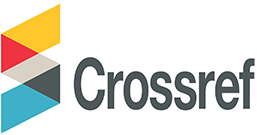Professionalism and Educational Ethics of University Teaching Staff
DOI :
https://doi.org/10.69760/aghel.0250020021Mots-clés :
Teacher personality, psychological analysis, higher education, teacher-student interaction, professionalism, academic motivation, emotional intelligenceRésumé
The personality and emotional intelligence of university instructors are essential factors influencing the quality of education in higher learning. This paper explores the psychological characteristics of teachers, particularly focusing on emotional intelligence, professionalism, and their impact on teacher-student interaction. Additionally, the study examines how these traits affect academic motivation and the development of student-teacher relationships. The article integrates existing literature on teaching psychology and offers insights into how understanding the psychological aspects of instructors can enhance the teaching-learning process in higher education.
Références
Bain, K. (2004). What the Best College Teachers Do. Harvard University Press.
Costa, P. T., & McCrae, R. R. (1992). Revised NEO Personality Inventory (NEO-PI-R). Psychological Assessment Resources.
Goleman, D. (1995). Emotional Intelligence: Why It Can Matter More Than IQ. Bantam Books.
Hattie, J., & Timperley, H. (2007). The Power of Feedback. Review of Educational Research, 77(1), 81-112.
Korthagen, F., & Vasalos, A. (2005). Linking Reflection and Professional Development. Teaching and Teacher Education, 21(7), 647-662.
Perry, W. G. (1970). Forms of Ethical and Intellectual Development in the College Years: A Scheme. Holt, Rinehart, and Winston.
Shulman, L. S. (1987). Knowledge and Teaching: Foundations of the New Reform. Harvard Educational Review, 57(1), 1-22.
Zeichner, K. M., & Liston, D. P. (1996). Reflective Teaching: An Introduction. Lawrence Erlbaum Associates.
Téléchargements
Publié
Numéro
Rubrique
Licence
© Acta Globalis Humanitatis et Linguarum 2025

Cette œuvre est sous licence Creative Commons Attribution - Pas d'Utilisation Commerciale 4.0 International.







